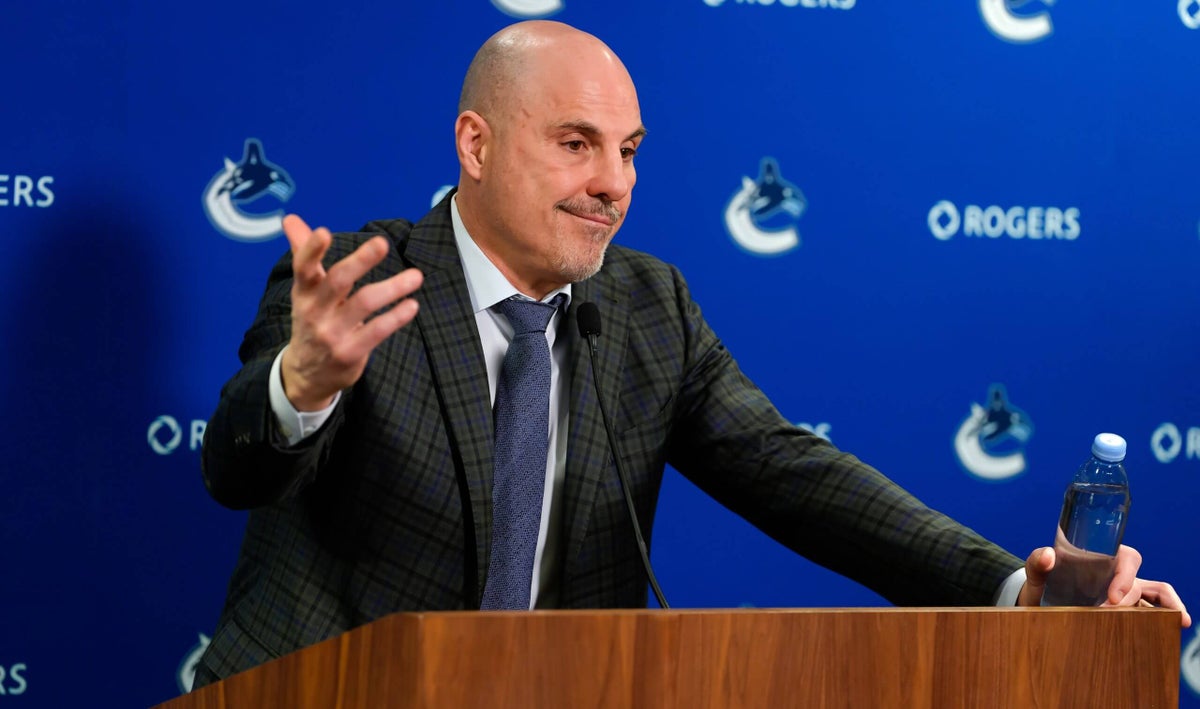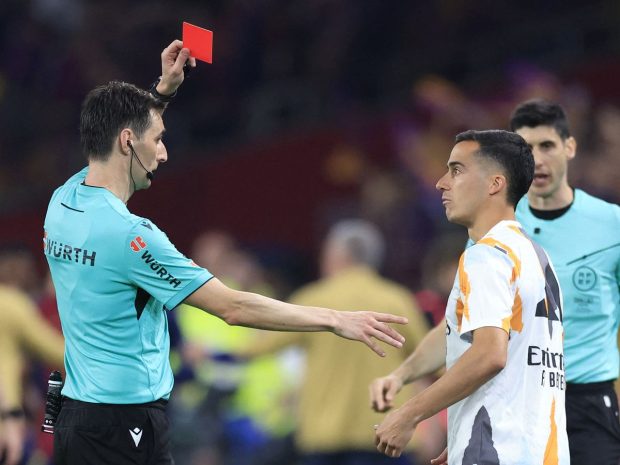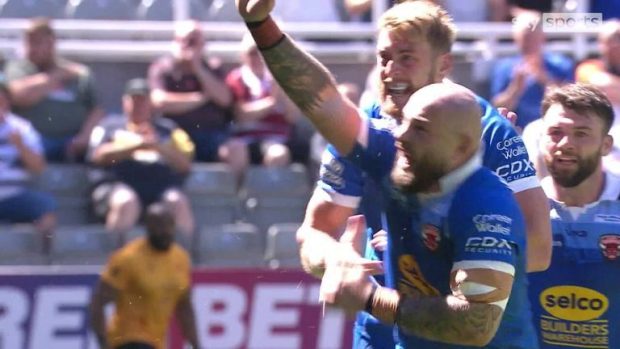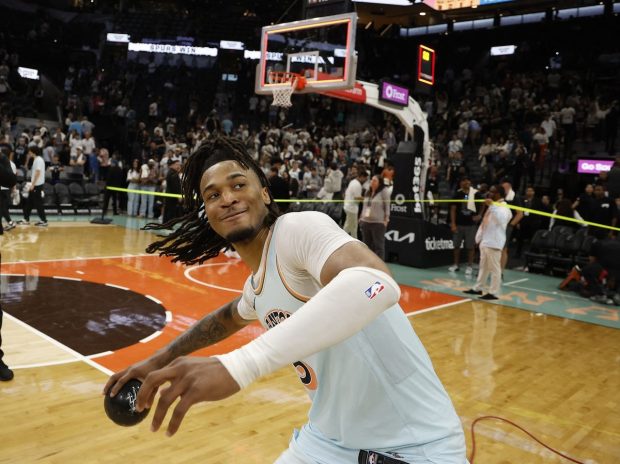

Rick Tocchet and Vancouver Canucks hockey operations leadership spent last weekend in meetings, discussing the difficult year they’d just endured, the future of the organization and their plans for a high stakes, all-in summer.
Less than a week later, Tocchet and his agent informed Canucks president of hockey operations Jim Rutherford that he’d decided not to return to Vancouver as head coach.
As the Tocchet saga reached its conclusion this week, it really wasn’t a back-and-forth negotiation. There was nothing adversarial or acrimonious about it.
The Canucks “stepped up” financially, according to two league sources. Keeping Tocchet was the club’s first choice, a fact that Rutherford wasn’t going to shy away from Tuesday simply because the outcome was a disappointing one from the team’s perspective.
Advertisement
As Tocchet wrestled with his decision over the past week, which was an arduous process for him, it wasn’t about money or term or a counteroffer being met (or not). It wasn’t about the relationships with ownership or management. It wasn’t about the city, or the Vancouver media, or the sometimes overwhelming attention about town.
No, for Tocchet, this seems to have been a highly personal decision. One that he didn’t make lightly.
It’s a decision made at a fork in the road of an NHL head coaching career during which Tocchet has had to contend with significant organizational dysfunction at every turn.
Tocchet’s first shot at being an NHL head coach came with the pre-Jeff Vinik Tampa Bay Lightning, and he was tasked with picking up the pieces of the disastrous 16-game Barry Melrose era.
Then, after years as a successful assistant coach with the Pittsburgh Penguins, Tocchet resurfaced with the cap-laundromat version of the Arizona Coyotes.
Finally, with the Canucks, Tocchet had appeared to land somewhere relatively stable, working with people he trusted and for a franchise that — after he helped author the most incredible single-season defensive turnaround in recent NHL history — seemed on the verge of breaking through as a consistent playoff team and fringe contender.
That was before this season, though.
That was before Elias Pettersson’s form dipped to an excruciatingly low level. Before Thatcher Demko missed extended stretches of games with three separate injuries, including an unprecedented knee tear. Before the rift between J.T. Miller and Pettersson tore the Canucks locker room apart and scuttled a season that opened with such incredible promise.
That was before Quinn Hughes’ future, clouded by his status as an extension eligible player in the summer of 2026, became the lens through which every piece of Canucks news was filtered.
Advertisement
After a trying campaign for the Canucks, a season that was more difficult for the people involved to live through than anyone on the outside can gather, there are dark clouds gathering unmistakably on the horizon.
There are massive, difficult questions shrouding all of Vancouver’s top players. There are real questions about the makeup and maturity level of this team, too, outside of Hughes and a handful of other reliable veterans.
The Canucks are the only team in the NHL without a practice facility, something that genuinely matters, especially for a coach like Tocchet who focuses a lot of his and his staff’s time, effort and thought to hands-on on-ice teaching.
All of that factored into Tocchet’s decision.
If it wasn’t about the money and it wasn’t about the relationships — and it wasn’t — then it’s fundamentally difficult to process Tocchet’s departure as anything but a complicated personal decision that leaves us fairly questioning whether he believed that there was a path to winning in Vancouver. Or not.
The implications of that, of course, are heavy for Canucks fans to consider.
That sense of an organization that, after one magical season of apparent progress, appears to be headed swiftly in a concerning, confidence-sapping direction. The Hughes dynamic raises those stakes further, stoking fears of a club that never really emerged from the unintentional Jim Benning era rebuild and could already be headed inexorably back into the relative irrelevance that the Canucks have largely toiled under for the past decade and a half.
This is the environment, and the level of fan-driven anxiety, that Rutherford attempted to settle by explaining the situation on Tuesday. Over the course of a typically honest 30-minute media availability, Rutherford admitted that Hughes had yet to call him back when he tried to reach him to inform him of the news about Tocchet’s departure.
Advertisement
The veteran executive was also asked about his Canucks future.
“I don’t think about it a lot, so I’m not thinking about leaving town,” Rutherford said, after a pregnant pause. “I’m still here for the same reasons, and I don’t feel comfortable with the job that I’ve done. We were on the right track a year ago, we got off that track. I take a lot of responsibility for it. It’s my job. I have the hockey department. We have a lot of work to do to get back on track and at this point in time that’s my focus, to see if we can do it.”
If getting this all back on track seems like an impossible task at this point, especially in the absence of Tocchet, the Canucks’ handpicked, culture-changing head coach, it’s at least worth bearing in mind that this isn’t the first time that this Rutherford-led management group has seemed to have its backs to the wall, tasked with microwaving a contender against all odds.
You’ll recall that the sky was falling in Vancouver too after l’affaire Bruce Boudreau in 2023, with the club having made a series of widely panned trades, including dealing captain Bo Horvat, and having fired its head coach in absurd, unbecoming circumstances.
The next year, the Canucks made it work. There was some luck involved, absolutely, but there were also some sharp, disciplined bets placed on bargain-bin free agents. Some dexterous work on the trade market to reallocate money and talent from the wings into center and defense.
And, of course, in landing Tocchet as Boudreau’s replacement, they indisputably nailed the head coaching hire.
Obviously, it’s difficult to repeat an improbable trick shot, and this isn’t where the Canucks would want to be positioned to begin this critical offseason. However, that seems to be where they’ve landed. It’s on Rutherford and his management group to do it again, whether that’s a fair ask or not.
Advertisement
This is really the thing to bear in mind here, more than anything. The crisis of confidence in the Vancouver market emanating from Tuesday’s news of Tocchet’s departure is, in some ways, indicative of a fan base that’s beginning to see the bottom of a deep, dark well.
That deep, dark well, however, has been visible for the entirety of this decade to anyone paying attention. An organization that’s been left behind in several crucial respects by its competitors, who have generally been far more willing to invest in facility upgrades, tanking seasons and the lost revenue and hope in stretch run games that are an inevitable byproduct of executing seller trades at the deadline than Vancouver has been.
There’s a cost to that, one that informs the club’s positioning, and indirectly, some of the factors that shaped Tocchet’s departure.
There’s a distinction between grappling with reality, however, and indulging unduly in cynicism. And underneath the churn of dysfunction and disappointment that has characterized the Canucks experience for the past 12 months, it’s worth recalling, after all, that this is still a hockey club with a vibrant, locked-in fan base that only missed the Stanley Cup playoffs by seven points — despite its star center struggling, and a significant late-season injury to one of the league’s most impactful superstar players.
This is a team that has quality goaltending and legitimate blue-line depth. There are emergency-level holes up front, without question, but the Canucks have both the assets and meaningful cap flexibility to take a credible shot at addressing it.
Vancouver has also still got a management team that’s proven itself at being adept at acquiring players on the trade market, and has proven itself efficient at identifying undervalued contributors.
Ironically, too, for the first offseason in well over a decade, the organization’s actual self-interest and penchant for reckless, all-in swings in pursuit of immediate gratification are actually aligned.
Advertisement
There’s no sense, after all, in rebuilding or charting a new direction now.
If you believe the Canucks can convince Hughes to stay provided that they prove that there’s a path to contention, then the club has to get back to the business of winning games in the playoffs. That necessitates major short-term improvement, a transformative, aggressive offseason in which future assets — like Vancouver’s 2025 first-round pick — should absolutely be on the table in trade talks for win-now help.
If you’re more dubious about their chances of getting Hughes’ autograph on an extension next summer, then next season should be viewed as the organization’s last kick at the can with the best defender in franchise history. Go all in, because there’s no sense in ripping the band-aid off now. Hughes isn’t extension eligible until next summer anyway, and his value will be maximized when you’re able to trade him in a Mikko Rantanen-style deal where an eight-year mega extension is baked into the return.
Of course, in either scenario, you’d feel more comfortable with a coach of Tocchet’s quality at the helm. The Canucks will miss the thoughtfulness and tactical ingenuity that Tocchet brought to the job. He established a holistic way to play and win. He unquestionably elevated this team during his two-and-a-half-year stint in Vancouver.
That Tocchet will immediately be considered among the top head coaching candidates on the market is a testament to the work he did in Vancouver, and the magnitude of the Canucks’ loss.
For the Canucks, however, and for their fans, there’s no time to be sullen about Tocchet’s decision. No point in being fatalistic about what it means for the franchise. Or what it portends.
There’s a new head coach to hire, a top-six center to land and a lot of scoring skill to graft onto this roster.
For the Canucks, this remains an all-in summer. Perhaps the most critical offseason in recent franchise history.
(Photo: Derek Cain / Getty Images)
This news was originally published on this post .









Be the first to leave a comment